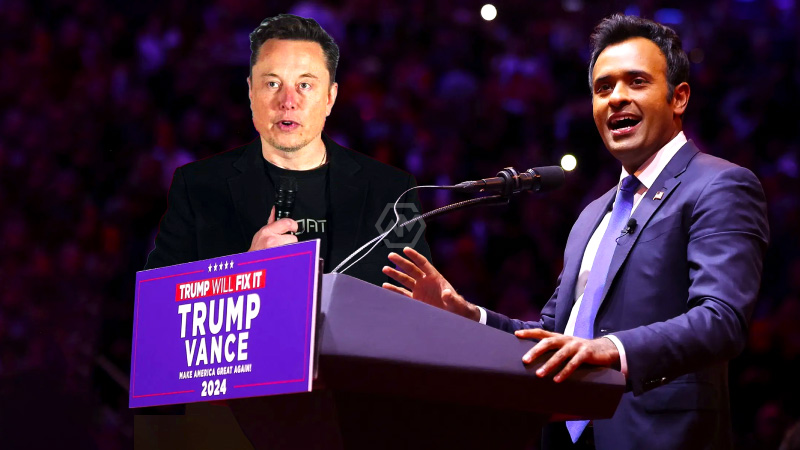- Vivek Ramaswamy and Elon Musk aim to slash federal government jobs through the Department of Government Efficiency (DOGE).
- Ramaswamy calls for removing bureaucrats to reduce inefficiencies and promote innovation in government.
- A Texas judge blocks the Biden administration’s rule to expand overtime pay to millions of salaried workers.
- The court ruling reflects ongoing tensions between worker protections and business interests, with economic impact concerns.
Vivek Ramaswamy, appointed alongside Elon Musk to lead the Department of Government Efficiency (DOGE), is pushing for large-scale cuts to the federal bureaucracy.
He argues that reducing the number of unelected bureaucrats will streamline government and foster innovation, which he believes will rejuvenate the U.S. economy.
Legal Battles and Bureaucratic Reform: The Future of US Labor and Government
The duo’s rhetoric emphasizes that cutting the size of government is critical for fostering innovation and economic growth, particularly by eliminating what they see as inefficient bureaucratic layers.
Their stance includes drastic measures, with Musk suggesting a “chainsaw” approach to trimming the federal workforce. While their plan remains controversial, they argue that the growing bureaucracy in agencies like the FDA and NRC is stifling technological progress and increasing costs for businesses and taxpayers alike. Ramaswamy and Musk are positioning themselves as outsiders willing to take on the establishment to reinvigorate the economy.
At the same time, a federal judge in Texas has blocked the Biden administration’s overtime pay expansion rule, which would have extended overtime protections to millions of salaried workers. This rule aimed to raise the salary threshold for overtime eligibility, potentially affecting millions of employees in executive, administrative, and professional roles. The rule was viewed as a win for worker rights, but it has been controversial due to concerns from business groups about its economic impact.
The ruling reflects a broader ideological divide over labor protections. Business leaders argue that the expanded overtime rule would hurt small businesses and limit job flexibility, potentially leading to reduced hours or layoffs. Legal challenges against similar labor reforms in the past suggest that efforts to expand worker protections often face significant opposition, particularly from conservative and business groups who prioritize economic flexibility.
The ongoing debates about government efficiency and worker rights underscore a pivotal moment in U.S. politics, with opposing forces advocating for either a leaner government or stronger protections for the workforce. The outcome of these issues will significantly shape the nation’s economic future.
“We are going to be taking it to that bureaucracy. It’s going to be a lot of fun.” — Vivek Ramaswamy



